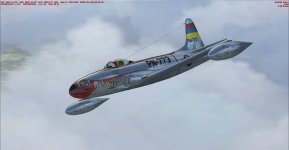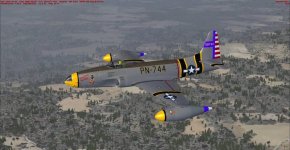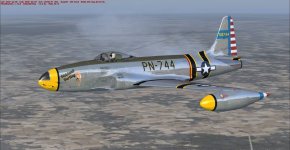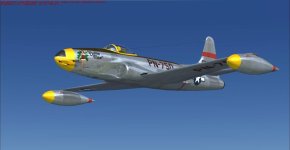-
There seems to be an uptick in Political comments in recent months. Those of us who are long time members of the site know that Political and Religious content has been banned for years. Nothing has changed. Please leave all political and religious comments out of the forums.
If you recently joined the forums you were not presented with this restriction in the terms of service. This was due to a conversion error when we went from vBulletin to Xenforo. We have updated our terms of service to reflect these corrections.
Please note any post refering to a politician will be considered political even if it is intended to be humor. Our experience is these topics have a way of dividing the forums and causing deep resentment among members. It is a poison to the community. We appreciate compliance with the rules.
The Staff of SOH
-
Please see the most recent updates in the "Where did the .com name go?" thread. Posts number 16 and 17.
You should upgrade or use an alternative browser.
Another "What if" P-80
- Thread starter Willy
- Start date
As morbid as it sounds, I am curious how the operation would have played out in practice.
From the books I've read on it, think Okinawa, but much, much worse for both sides. The Japanese were much better prepared for it than the allies thought they were. It's estimated over 12,000 aircraft of all types with at least half as kamikazes. They pretty much knew where we would land (not many options for amphibious landings in Japan) and with the first part, Operation Majestic, on the southern island in Nov 1945, , they were apparently intending to throw almost everything they had at us with very little reserves. The Japanese knew they couldn't win, but were intending to make it so bloody, we'd go for a negotiated peace agreement rather than the unconditional surrender we'd been demanding. It could have went either way. They weren't as defeated as revisionist history makes out.
wombat666
Administrator
From the books I've read on it, think Okinawa, but much, much worse for both sides. The Japanese were much better prepared for it than the allies thought they were. It's estimated over 12,000 aircraft of all types with at least half as kamikazes. They pretty much knew where we would land (not many options for amphibious landings in Japan) and with the first part, Operation Majestic, on the southern island in Nov 1945, , they were apparently intending to throw almost everything they had at us with very little reserves. The Japanese knew they couldn't win, but were intending to make it so bloody, we'd go for a negotiated peace agreement rather than the unconditional surrender we'd been demanding. It could have went either way. They weren't as defeated as revisionist history makes out.
Exactly Willy.
As early as the mid 1960s when I did my OC course at Duntroon this (or rather similar) subject was part of our study, couched in the terms of conventional v nuclear weapons use in an (unnamed) 'Asian' conflict.
In other words "If Hanoi were hit by a Nuke would that finish off the NVA and VC?"
IIRC almost 30% of our group were for that approach, 40% maybe, 20% no comment and the remaining 10% (including YHS) felt it was "too bloody silly to even contemplate".(very round numbers, it was nearly 50 years ago!)
The unnamed 'Asian Conflict' was a totally different proposition to Japan in 1945.
A good read for a 'what if' WW.II outcome is 'The Man in the High Tower', if you have the time of course.
Back OT, nice repaint as usual.

Bjoern
worst developer ever
From the books I've read on it, think Okinawa, but much, much worse for both sides. The Japanese were much better prepared for it than the allies thought they were. It's estimated over 12,000 aircraft of all types with at least half as kamikazes. They pretty much knew where we would land (not many options for amphibious landings in Japan) and with the first part, Operation Majestic, on the southern island in Nov 1945, , they were apparently intending to throw almost everything they had at us with very little reserves. The Japanese knew they couldn't win, but were intending to make it so bloody, we'd go for a negotiated peace agreement rather than the unconditional surrender we'd been demanding. It could have went either way. They weren't as defeated as revisionist history makes out.
Any book recommendations?
Just uploaded Fast Ass Bird. Now on to the next one.
The next one: Dixieland Darling based on a PTO P-47. The rear of the right tip tank needs some work and I'm not happy with that shade of blue. Might adjust the fuselage stripes a bit forward too although that'll open a can of worms with the bottom of the fuselage.
Attachments
Any book recommendations?
'Nemesis' by Max Hastings, covering 1944-45. His accounts of the Japanese government's internal wranglings and their attempts to end the war ( rather than surrender ) are detailed, but readable and easy to follow.
'The Pacific War 1931-1945' by Saburo Ienaga. This isn't an account of such subjects as China, Pearl Harbour, Midway, Burma, Okinawa etc, but rather a social history of Japan during that period. It details what life was like in Japan, the press censorship, loss of civil liberties and so forth. Contrary to the received wisdom in the west, the Emperor was not revered as a god by many Japanese.
'Lighter Than A Feather' by David Westheimer. This is a work of fiction, a 'what-if' history, that tells the story of the Allied invasion of Japan, and it's consequences for both sides. I read it many years ago, and remember enjoying it.
'Kamikaze Diaries' and 'Kamikaze, Cherry Blossoms and Nationalisms' both by Emiko Ohnuki-Tierney. They explain much of what is unfathomable about Japan's national psyche in the 1930s and early 1940s.
'Fading Victory' The war diary of Admiral Matome Ugaki. He was in the other Betty that was shot down when Yamamoto was ambushed by P-38s. He survived and his diary is unique in that it provides a day to day account of Japanese naval strategy at the highest level. I believe it's out of print, but you might be able to order it second hand. I'm hanging on to my copy !
Bjoern
worst developer ever
I've got a couple around here somewheres. "Hell to Pay" by D. M. Giangreco is a good start. "Downfall: The End of the Imperial Japanese Empire" by Richard B. Frank is also a good read on the subject.
'Nemesis' by Max Hastings, covering 1944-45. His accounts of the Japanese government's internal wranglings and their attempts to end the war ( rather than surrender ) are detailed, but readable and easy to follow.
'The Pacific War 1931-1945' by Saburo Ienaga. This isn't an account of such subjects as China, Pearl Harbour, Midway, Burma, Okinawa etc, but rather a social history of Japan during that period. It details what life was like in Japan, the press censorship, loss of civil liberties and so forth. Contrary to the received wisdom in the west, the Emperor was not revered as a god by many Japanese.
'Lighter Than A Feather' by David Westheimer. This is a work of fiction, a 'what-if' history, that tells the story of the Allied invasion of Japan, and it's consequences for both sides. I read it many years ago, and remember enjoying it.
'Kamikaze Diaries' and 'Kamikaze, Cherry Blossoms and Nationalisms' both by Emiko Ohnuki-Tierney. They explain much of what is unfathomable about Japan's national psyche in the 1930s and early 1940s.
'Fading Victory' The war diary of Admiral Matome Ugaki. He was in the other Betty that was shot down when Yamamoto was ambushed by P-38s. He survived and his diary is unique in that it provides a day to day account of Japanese naval strategy at the highest level. I believe it's out of print, but you might be able to order it second hand. I'm hanging on to my copy !
Thanks!
A dissenting population actually would have made an invasion easier than anticipated. Not as easy as rolling through west Germany, but at least less instances of militias and civil unrest.
Amazon is probably your best bet on out of print books. I've got a few there. Mostly used in good shape.
There's also this one: https://www.abebooks.com/
Don't worry about overseas vendors. I've imported about a dozen books from the US and UK by now and everything went very smoothly, including an order cancellation.
Bjoern said:A dissenting population actually would have made an invasion easier than anticipated. Not as easy as rolling through west Germany, but at least less instances of militias and civil unrest.
One of the things the Japanese were doing was to conscript every man 15 to 60 and ever woman 18 to 40 to fight with whatever they had. I remember reading one woman was given an awl to use as a weapon and told all she had to do was kill one American.
I'm sure the people being pressed into Japan's own Volksturm did their best to appear eager to resist the invader and die for the Emperor, because any sign of dissent would have had them dragged away. As is always the case, it is easier to go with the crowd, than stand out and say no. Once the recruiters had moved on to the next town, however, those same war-weary civilians probably laid their improvised weapons aside and got back to discussing how they would surrender when the Americans arrived. That's the way of the world.
There is another book called 'Blossoms in the Wind' by M.G. Sheftall, which in one chapter tells of what happened when American troops arrived in a small Japanese village as the occupation was implemented. The women and girls of the village had been sent into hiding in the hills, for fear of what would happen to them - such was the propaganda fed to them by the authorities. The Americans eventually arrived in a jeep and a truck. The jeep carried a doctor, the truck carried food. The Japanese were astonished, and called their womenfolk back.
As for an overall history of the Pacific war, I enjoyed 'Eagle against the Sun' by Ronald Spector, particularly his rather acidic irreverence towards MacArthur.
Also, anything by Gordon Prange, who accompanied MacArthur to Japan, and is considered the doyen of Pacific war historians.
Bjoern
worst developer ever
One of the things the Japanese were doing was to conscript every man 15 to 60 and ever woman 18 to 40 to fight with whatever they had. I remember reading one woman was given an awl to use as a weapon and told all she had to do was kill one American.
I'm sure the people being pressed into Japan's own Volksturm did their best to appear eager to resist the invader and die for the Emperor, because any sign of dissent would have had them dragged away. As is always the case, it is easier to go with the crowd, than stand out and say no. Once the recruiters had moved on to the next town, however, those same war-weary civilians probably laid their improvised weapons aside and got back to discussing how they would surrender when the Americans arrived. That's the way of the world.
"Volkssturm" very much.
One of my grandfathers escaped a "The Bridge"-like death at the hands/guns of the US Army because his mother forbade him to go out and fight and instead hid him in the cellar from the SS death squads roaming the streets.
Funny how it wasn't that much different on the other side of the world.
P-80B-5-LO 45-8750 "Dottie Mae"
Operation Downfall, Japan, circa Spring '46
Picking through the reference files now for the next one.
Yall do know that I have been known to take requests? If there's a P-80/F-80 Shooting Star you'd like to see, let me know and I'll see what I can do.




